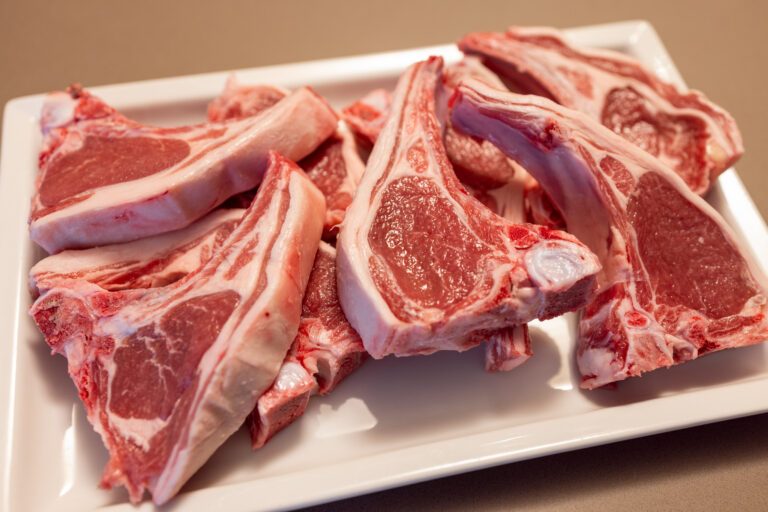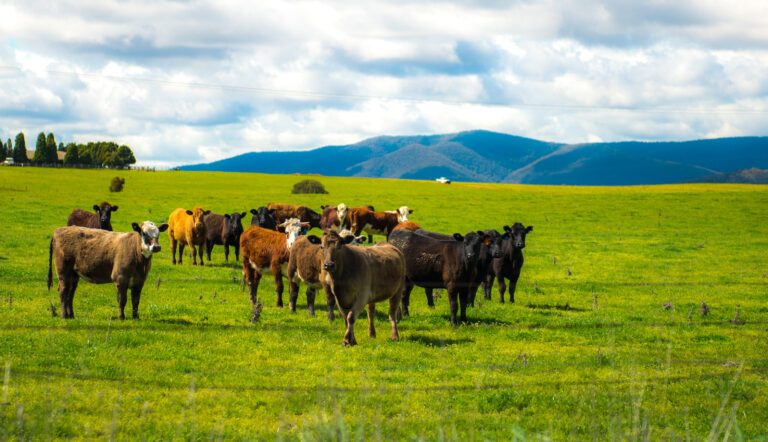Halal From Down Under: Australia’s Meat Exports Unpacked
Dr. Emad Galambo
Australia is globally renowned for its ethical animal welfare standards, expansive green pastures, and thriving agricultural industry. This reputation has made it one of the world’s largest exporters of red meat, with a significant portion catering to Muslim-majority countries and communities, where halal certification is crucial. Each year, Australia exports over 1 million tons of meat and offal to more than 160 countries. Seventeen of these countries are Muslim-majority countries, and many others have significant Muslim populations (DAFF).
Thanks to this reputation, many consumers, especially in Muslim-majority countries, have come to associate Australian and New Zealand meat with high quality and even assume it is halal by default. However, halal certification is not automatic. Some Australian meat is processed for domestic or non-Muslim export markets, and may not meet halal requirements. Understanding how halal meat is regulated in Australia is essential for making informed choices.
What Is the AGAHP?
The Australian Government Authorized Halal Program (AGAHP) is a formal, three-way partnership designed to regulate the production and certification of halal meat exports from Australia. The program includes:
This structure ensures that halal-certified meat from Australia aligns with both Islamic guidelines and the importing country’s requirements, reinforcing consumer confidence.
How Is It Regulated?
Facilities that process halal meat for export must comply with the Export Control Act 2020 and the Export Control (Meat and Meat Products) Rules 2021. These laws set clear rules for the treatment, handling, and certification of meat products intended for export. The Australian Government monitors compliance through on-site inspections, audits, and a rigorous accreditation process for Islamic organizations involved in certification.
Is All Australian Meat Halal?
It’s important to know that Halal certification is not automatic.
“Just because meat is from Australia does not mean it meets Islamic dietary standards.”
 Some producers may cater to domestic or non-Muslim export markets where Halal certification is not required. In such cases, animals may not be slaughtered according to Halal procedures or supervised by qualified Islamic authorities. This is why label verification is key. Look for reputable Halal certification logos and check for labeling that states the meat has been processed under the AGAHP.
Some producers may cater to domestic or non-Muslim export markets where Halal certification is not required. In such cases, animals may not be slaughtered according to Halal procedures or supervised by qualified Islamic authorities. This is why label verification is key. Look for reputable Halal certification logos and check for labeling that states the meat has been processed under the AGAHP.
Importing Australian Meat for Restaurants, Shops, and Processing Meat Factories
Many US meat suppliers are importing Australian meat, particularly lamb, for it is less expensive than American meat. They resell it to food manufacturers for use in various products, as well as to retailers for direct sale to consumers.
Many high-end restaurants in North America import premium cuts of Australian meat, such as Wagyu steaks, ribeye, and lamb chops, known for their exceptional flavor and tenderness. These establishments often cater to Muslim diners by offering halal-certified options sourced from Australia’s ethical livestock industry, ensuring the meat has been processed according to Halal standards. This combination of quality and certification allows restaurants to meet the growing demand for luxury cuts, while ensuring that they remain halal-compliant for their diverse customer base.
What does this mean for Muslim Consumers?
For Muslim consumers seeking Halal options, especially in American markets, Australia remains a trustworthy source when Halal labels and certification are verified. Halal-certified meat exported under the AGAHP has been processed with religious integrity, government oversight, and full transparency. The USA and Canada import a vast amount of Australian beef and lamb, much of which is Halal-certified under the AGAHP. However, not all of the imported Australian Halal meat meets Halal requirements, making proper certification and labeling essential for Muslim consumers.
Conclusion
IFANCA supports robust Halal certification systems that combine religious principles with strict regulatory oversight. The AGAHP program provides a trusted brand to ensure that Australian halal meat complies with Islamic food standards.
Not all Australian meat available in the US domestic market is Halal. Therefore, consumers purchasing meat from convenience stores must ensure that Halal labels are present on meat trays and packaging, and that a Halal stamp is visible on carcasses. Similarly, meat processors using Australian Halal raw meat must ensure the Halal label is present, request Halal certification from suppliers, and present it to an IFANCA inspector when supervising the manufacturing of Halal products.
References:
Emad Galambo, DVM, MBA, is an expert in the meat and dairy processing industry, a technical auditor of meat plants, and serves as the Meat Certification Coordinator at IFANCA.